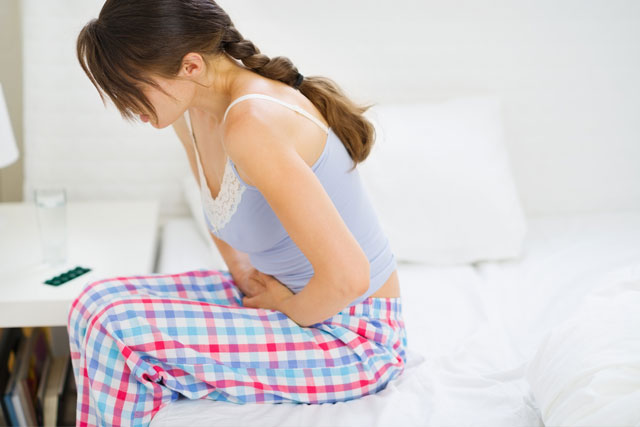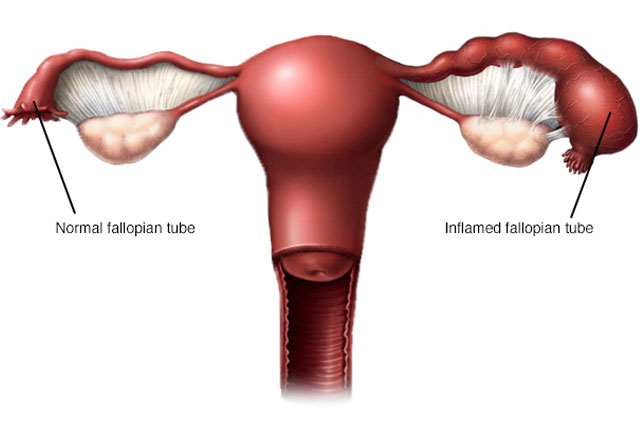As per American Congress of Obstetricians and Gynecologists, over the half of women who are menstruating, complain about periods, menstrual pains or cramps for at least a couple of days each month. Dysmenorrhea is another popular name for period cramps, however, in a normal scenario, it’s not a very serious health issue.
This irritating part of the period can happen before or even during the period itself. There are various women, who usually get this problem every month. This mellow to serious pain appears on your back or in your lower belly. Mostly, it appears during initial couple of years, after a girl gets her very initial menstruation. Along with cramps, many women can also experience, nausea, dizziness, loose bowels and even headache. If you suffer from menstrual cramps and have a heavy flow, you might need some protective underwear that can help prevent leaks.
Causes of Menstrual Cramps:
The uterus normally shrinks temporarily to spit out its lining during the menstrual period. Hormones like prostaglandins which have a history of causing inflammation and pain are mainly involved in the muscular contractions of the uterus. The higher the level of prostaglandin the more severe the cramps are. If this shrinking is of a higher magnitude then it inhibits the blood vessels from nourishing the uterus. This is turn causes pain that can be compared to chest pain caused by blocked blood vessels.
It can also happen because of following conditions too:
Adenomyosis:
When the tissue, which provides a lining too or channels your uterus starts to grow inwards towards the muscular wall of your uterus, the condition is called adenomyosis.
Uterine fibroids:
Uterine fibroids are non-cancerous tumors that develop on the walls or lining of the uterus, mostly in women aged 40 – 50, the severity of pain depends on its location, size, and the number of fibroids present.
Cervical stenosis:
A few women whose gateway to the cervix is very small there causing obstruction to the menstrual, can face recurring bouts of period because of enhanced pressure in the uterus.
PID / Pelvic Inflammatory Disease:
This condition in women’s reproductive systems mostly appears because of bacteria transmitted through sex can also be one of the reasons of period pain.
Endometriosis:
This is a very painful condition that occurs when tissues bordering the uterus become firmly fixed outside the uterus or the ovaries or on the tissues bordering the pelvis or on the fallopian tubes.
Situations like the ones mentioned below can lead to enhanced health risk:
- If you have begun puberty as early as 11or even at a younger age.
- If you have never given a birth.
- When you are below 30.
- When your family has a history of dysmenorrhea.
- If you are suffering from metrorrhagia or intermittent periods.
- If you are a smoker.
- When you are suffering from menorrhagia or heavy periods.
Treatment:
- Usually, women go for over the counter medicines to get relief from menstrual cramps.
- Anti-prostaglandins are known to lower the flow and provide relief from irritation and cramping.
- Other medicines could be naproxen or even ibuprofen, which are known as NSAIDs or nonsteroidal anti-inflammatory drugs.
- Depending on the candidate, doctors can also suggest hormonal birth control pills to avert the ovulation as well as to lower the seriousness of cramps. These medicines reduce bleeding and cramps as they cause a reduction in the density of the uterus’s lining thereby reducing the habitat of prostaglandins.
- For a few situations, pills (birth control) can be used constantly, even without taking the usual four to seven days gap every month. These cases often do not experience bleedings.
- There are different types of birth controls, vaginal rings, hormonal IUD, injections and patches that are also available for lowering of the cramp.
- When cramps occur because of some medical issues, like surgery or fibroids or even endometriosis, then you might need to take out the unusual tissue and in such cases, doctor’s consultation is highly needed.
Some remedies for lowering the menstrual cramps are:
- Daily exercise
- Limit the consumption of sweet and salt, caffeine, alcohol, and fat.
- Enhance the portion of veggies and fruits in your meals.
- Stop smoking
- Lowering stress or anxiety
Though there is a belief that acupressure or even acupuncture and yoga can reduce this problem, however, more research on these issues is needed, still do talk to your gynecologists before taking any self-medication or if your pain is going unbearable and persistent every month.


